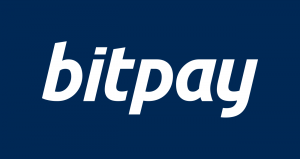BitPay Brings NFC To Bitcoin
 The US has been in a rush to finally bring mobile payments into the mainstream – and, as usual, it’s a colossal mess. Apple kicked things off with Apple Pay, which is almost exactly the same product as Google Wallet, but somehow far more successful. Apple almost immediately ran afoul of a number of merchants’ (including CVS and Walmart’s) attempts to implement their own (comically insecure) mobile payment standard, called CurrentC. At this point, it remains unclear, when all the anti-competitive backstabbing is done, which technology will come out on top.
The US has been in a rush to finally bring mobile payments into the mainstream – and, as usual, it’s a colossal mess. Apple kicked things off with Apple Pay, which is almost exactly the same product as Google Wallet, but somehow far more successful. Apple almost immediately ran afoul of a number of merchants’ (including CVS and Walmart’s) attempts to implement their own (comically insecure) mobile payment standard, called CurrentC. At this point, it remains unclear, when all the anti-competitive backstabbing is done, which technology will come out on top.
Regardless, all of these technologies depend upon a relatively new technology called NFC, or Near-Field Communication. NFC chips use direct magnetic induction to communicate between devices a few inches apart. This is preferred over other solutions for two reasons: first, because it isn’t radio based, it’s inherently range-limited by the inverse square law of electromagnetics in a way that (for example) bluetooth is not. That makes it harder to snoop on remotely, which is nice if your payment infrastructure is fundamentally and pathologically insecure like credit cards. Furthermore, direct magnetic induction is robust, since it can transmit through metal object that would reflect radio waves. This combines to create an awesome platform for mobile payments: the register sends the payment to your phone, you check the amount and destination, and then swipe to confirm. It’s effortless. It feels like how payments should work. No wallets, no change, no swiping – just effortless transactions.
Now, BitPay – one of the largest Bitcoin payment processors in the world (and creator of one of the most-used mobile wallets) – is bringing NFC technology to Bitcoin as they announced at the recent Money2020 conference in Vegas. Used properly, it looks something like this:
Right now, the app still requires a wireless connection to make these transactions, but it’s possible that a later version of the software could use NFC to transmit the signed transaction to the POS terminal, and use the internet connection of that device to broadcast it to the Bitcoin network, allowing payments to work even when out of service.
Mobile payments are in a tumultuous state right now. Bitcoin is certainly the black sheep of payment technologies at the moment (it’s price unstable, doesn’t integrate with your bank or credit card, and you might have to buy it behind a parking garage from a sketchy guy with a Ron Paul bumper sticker). However, we also live in a time where the zeitgeist is more concerned than ever with privacy and security, and Bitcoin has real, tangible advantages over trusting your money to walled gardens ruled by the likes of Apple (an NSA PRISM partner, let’s not forget). It’s not out of the question that making Bitcoin effortless is exactly the push needed to secure Bitcoin’s role in the mainstream economy for years to come.

![[Guest Post] The True Use Cases for Bitcoin and Its Role in Banking the Unbanked](https://coinreport.net/wp-content/uploads/2019/04/Ray-Youssef-Paxful-CEO-400x230.jpg)










